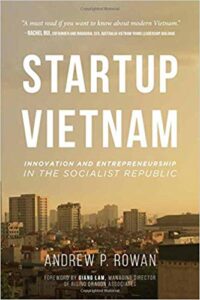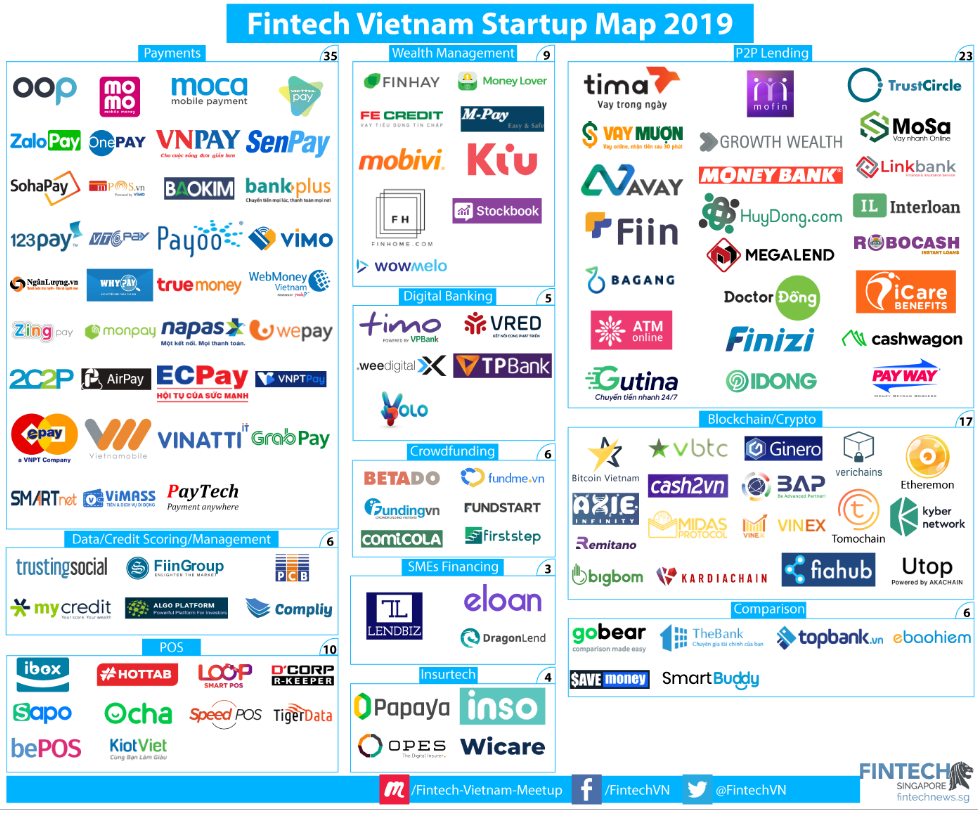A new book exploring Vietnam’s startup ecosystem was released earlier this month, detailing an American entrepreneur’s experience in supporting, and working with Vietnamese entrepreneurs across the nation.
The book aims to capture the successes of and challenges facing Vietnam’s youth, local startups, and foreign entrepreneurs—in a rapidly transforming nation.
Andrew Rowan’s new book, titled Startup Vietnam: Innovation and Entrepreneurship in the Socialist Republic, features ten chapters across three sectors aimed at showcasing an on-the-ground and in-depth view of Vietnam’s startup environment in the Indo-Pacific regional and global contexts.
Here’s What We Got out of It
Vietnam is a very young country with plenty of energy. The median age in Vietnam is 31 with almost 70% of the population under 40 years old in 2015 and over 1 million babies born each year. The middle and affluent classes are expected to grow in the nation too.
Then there are the 4 million members of the Vietnamese diaspora. As a result of this global network, inward remittances to Vietnam totaled more than US$12 billion in 2015, placing Vietnam in the top ten countries receiving remittances from abroad.
In more than 30 years since Doi Moi, the renovation policy, took effect, Vietnam has created and experienced remarkable economic growth and a meteoric development. The country has experienced “the world’s second-fastest growth rate per person since 1990,” behind only China, according to the Economist.
Vietnam has steadily integrated its economy into the global marketplace. Through these liberalisation efforts, poverty in Vietnam had been reduced to around 20% from 60% in the early 1990s. As of 2017, the poverty rate in Vietnam was 7%, lower than some of its regional neighbors including Thailand and Indonesia.
A huge contributor to Vietnam’s current economy is Samsung, and the firm has invested US$17.3 billion into its economy.
Samsung is Vietnam’s largest exporter, contributing over 22% of the US$175.9 billion in export revenue in 2016. Samsung’s largest smartphone production base is in Vietnam where 140,000 workers make up about one third of its global workforce. Furthermore, Samsung Vietnam’s research center is located in Hanoi, making Vietnam an essential part of Samsung’s global supply, and Samsung an integral part of Vietnam’s economy as its largest foreign investor.
Currently, Vietnam is at the intersection of manufacturing and IT outsourcing but it is also well positioned to benefit from increased trade in the region. As of January 2018, the country had ten free-trade agreements with countries such as South Korea, India, New Zealand and Australia.
A 2017 report by Oxford Economics projects Ho Chi Minh City to be the second-fastest-growing city in Asia through 2021 partly due to its manufacturing and services sectors.
Vietnam’s startup ecosystem
Vietnam is fast becoming a tech startup hub in the ASEAN region. The country is now home to as many as 3,000 startups, making it the third largest startup ecosystem in Asia. In 2017, 92 firms secured deals worth a record US$292 million, a 42% increase from 2016’s US$205 million, according to Topica Founder Institute.
The majority of successful tech startups in Vietnam are limited to the three main fields of e-commerce, fintech and online services. An EY report estimates that US$129 million was invested in fintech startups in 2016, accounting for 63% of all startup contract value, with local startups including Payoo, VNPT E-pay, and F88 leading in terms of deal value.
Hanoi’s leadership has committed to making Vietnam a “startup nation” in a bid to accelerate the country’s growth over the next 20 years.
Since 2016, the government has been actively promoting the local tech industry through legislative measures. The Law on Technology Transfer makes it easier for local startups to access tech from abroad and the Decree 38-ND-CP provides additional legal protections to startups and allows increased access to state funding.









